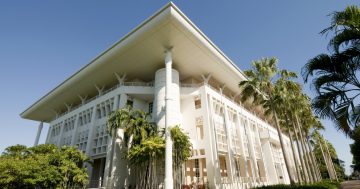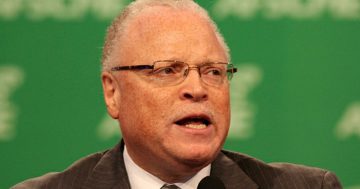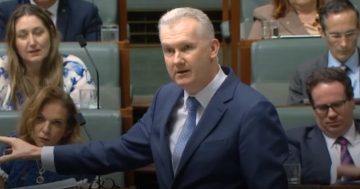 Members of the US Democrat Party in both the United States’ House of Representatives and Senate introduced legislation last week that, if passed, would give federal Government employees an average 8.7 per cent pay rise next year.
Members of the US Democrat Party in both the United States’ House of Representatives and Senate introduced legislation last week that, if passed, would give federal Government employees an average 8.7 per cent pay rise next year.
The proposed rise would comprise a 4.7 per cent increase in basic pay and an average 4 per cent increase in locality pay – a system by which federal employees in more expensive areas are compensated for higher living costs.
The Federal Adjustment and Income Rates (FAIR) Act, introduced by House representative Gerry Connolly and senator Brian Schatz, aims, Connolly said, to restore “years of lost wages” over the last decade due to hiring and pay freezes, government shutdowns and other circumstances.
“For years now, federal employees have risked their health and safety working on the frontlines of this pandemic,” Mr Connolly said.
“They were subjected to the Trump administration’s cruel personal attacks, unsafe work environments, pay freezes, government shutdowns, sequestration cuts, furloughs and mindless across-the-board hiring freezes. Still, our federal workforce serves with dedication and distinction every day. Federal employees are our government’s single greatest asset, and they deserve better.”
Unions including the National Federation of Federal Employees, the American Federation of Government Employees (AFGE), and the National Active and Retired Federal Employees Association have applauded the move.
“The latest report of the Federal Salary Council shows that federal worker pay lags behind the private sector by over 23 per cent – making it difficult for agencies to recruit, hire and retain top talent and hurting the quality of services Americans receive,” The president of AFGE, Everett Kelley said.
“The 8.7 per cent pay increase included in the FAIR Act will not only reward federal employees’ hard work and help them keep pace with inflation, but it will also help Government Agencies remain competitive and deliver high-quality services to the American public.”
They said the FAIR Act, which last year proposed a 5.1 per cent average pay increase for feds in 2023, is rarely acted upon.
The latest introduction of the bill came after last November’s midterm elections in which the Republican party secured a majority in the House.
The GOP’s focus is on limiting government spending – it agreed to only consider spending bills for fiscal 2024 that would cut domestic agency funding across the board by more than 20 per cent.
Washington, 2 February 2023











